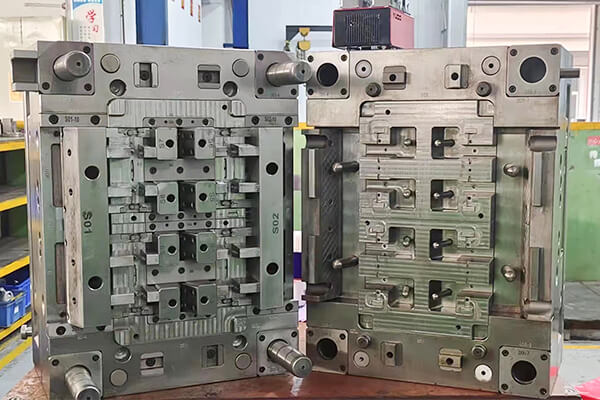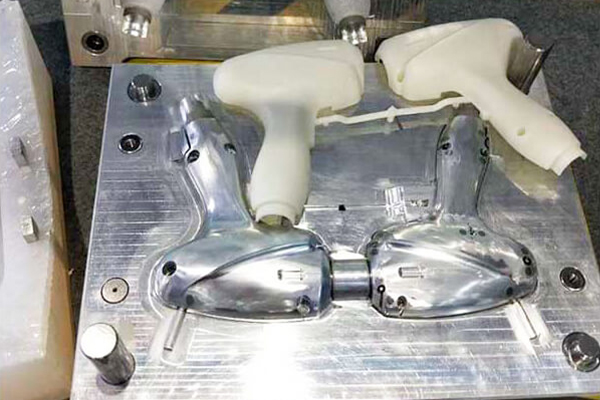Choosing the Right Materials to Make Molds
The Role of Molds in Manufacturing
Molds are essential in manufacturing, serving as the silent architects behind numerous products. They shape raw materials into precise forms, enabling mass production and ensuring consistency. Molds allow for complex, intricate designs, driving innovation. Their cost efficiency, reducing per-unit costs, is invaluable for large-scale production. Customization, minimal material waste, and adaptability across industries underscore their versatility. Quality control is maintained through molds, upholding product standards. As technology advances, molds evolve, contributing to product development.
In essence, molds are the unsung heroes of manufacturing, quietly shaping the world around us. They facilitate precision, consistency, cost efficiency, and sustainability, allowing industries to create everything from intricate components to everyday products. Without molds, many of the conveniences and necessities of modern life would be unattainable.
The Importance of Choosing the Right Materials to Make Molds
Choosing the right material to make a mold is a critical decision that profoundly affects the entire manufacturing process. It’s not just choice; This is a strategic choice that affects product quality, production efficiency and cost-effectiveness. Here, we delve into the importance of this decision and why it deserves careful consideration.
- Mold Performance:
The right materials determine how well a mold performs over time. Durability, heat resistance, and dimensional stability are crucial factors. - Product Quality:
Mold materials directly affect the precision and quality of the final product. Inadequate materials can lead to defects and variations. - Production Efficiency:
Properly selected materials contribute to smoother production processes, reducing downtime and enhancing efficiency. - Cost Optimization:
Optimal materials help manage production costs by ensuring a longer mold lifespan, reducing maintenance, and minimizing material waste. - Versatility:
The versatility of mold materials allows for a wide range of applications, from intricate designs to high-volume production. - Material Compatibility:
Materials must be compatible with the molding process and the specific material being molded to prevent issues and ensure a successful outcome. - Longevity and Sustainability:
Choosing materials with a longer lifespan aligns with sustainability goals, reducing the need for frequent replacements and material consumption.
Common Materials for Mold Making
Molds are fundamental to manufacturing, and the choice of materials to make molds has a significant impact on the success of the production process. Sungplastic carefully selects the most suitable materials for mold manufacturing to ensure a successful production job. We can roughly divide these materials into two categories: metal mold materials and non-metal mold materials. Each category has its unique characteristics and applications.
Metal Mold Materials
Steel molds are renowned for their durability and exceptional wear resistance. Common varieties include P20, H13, and S7. They are favored for high-volume production and can withstand the rigors of various molding processes.
P20 Pre-Hardened Tool Steel
The most popular mold steel for plastic injection molding is P-20 Steel, which has strong wear resistance and is reasonably priced. It is a pre-hardened injection mold steel material, which implies it is prepared for usage in the mold when it leaves the factory hardened to a certain hardness. P-20 is perfect for applications requiring high production volumes and shallow cavity molds.
- Features:
After machining, it makes heat treatment easier.
Because of its pre-hardening, it provides stability and strength.
The thermal stability of P20 is good.
It offers exceptional resilience to wear and tear.
It has good features for polishability.
For plastic injection molds and die casting, P20 is preferable.
H13 Tool Steel
A type of hot work tool moulding steel called H-13 Steel is made to withstand wear and thermal fatigue. It is perfect for high-heat applications and deep cavity molds since it is substantially harder than P-20 steel. Additionally, more costly than P-20 steel, it is typically employed in big-volume manufacturing.
H13 is employed in numerous cold work tooling applications due to its high toughness and excellent heat treatment resilience. The steel H-13 is a multipurpose material with exceptional tensile characteristics, surface texturing, abrasion resistance and hardness.
- Features:
H13 makes welding more convenient.
It offers good resistance to abrasion.
Moreover, it is quite machineable.
It has strong thermal change wear resistance.
S7 Pre-Hardened Tool Steel
S7 Steel is a shock-resistant tool steel designed to endure significant impacts and vibrations. It is frequently employed in die-cast molds and other purposes that require high stress and vibration resistance.
- Features:
It has outstanding shock resistance.
It possesses qualities of wear resistance.
High toughness is a characteristic of S7 tool steel.
It can resist extremely hot temperatures.
420 Stainless Steel
A corrosion-resistant and heat-treatable variety of stainless steel is called 420 Steel. Because of its low cost and resistance to corrosion, it is frequently used by medical plastic injection molding producer and food-grade plastic injection molding producer. Compared to other mould materials, it is softer and good for high-volume manufacturing.
- Features:
It provides maximum corrosion resistance following complete hardening.
Outstanding edge retention and wear resistance.
Among all grades of stainless steel, it is the hardest mould material.
It’s not too difficult to machine 420 stainless steel.
Customized injection molding is possible.
Aluminum Alloys
Aluminum molds are celebrated for their lightweight nature, cost-effectiveness, and excellent heat conductivity. They are ideal for prototyping, low-volume production, and industries where rapid heat dissipation is critical.
Tool Steels
Tool steels like D2 and A2 are chosen for their exceptional wear resistance, making them suitable for molds subjected to heavy use, especially in processes like injection molding.
Stainless Steel
Stainless steel molds excel in corrosion resistance and maintain their integrity under high-temperature conditions. They are often employed in food processing, medical equipment, and industries with stringent hygiene standards.
Copper Alloys
Copper and its alloys, like beryllium copper, boast excellent thermal conductivity. They are favored in industries where rapid cooling is essential, such as plastic injection molding.
Non-Metal Mold Materials
Silicone
Silicone molds are known for their flexibility and ease of use, making them ideal for creating intricate and delicate shapes. They are commonly used in small-scale production, as well as in crafting and culinary applications.
Polyurethane
Polyurethane molds are valued for their cost-effectiveness and quick turnaround times. They are often chosen for low-volume production runs and rapid prototyping.
Plaster
Plaster molds are economical and suitable for creating prototypes and artistic objects. They are easy to work with but may not withstand high-volume production.
Composite Materials
Composite molds are crafted by combining different materials, often to achieve specific properties like enhanced strength, heat resistance, or reduced weight. They find applications in various industries, including aerospace and automotive.
Factors Affecting the Choice of Mold Material
Selecting the right material to make mold is a crucial decision in manufacturing, as it significantly impacts the quality, efficiency, and cost-effectiveness of the production process. Several key factors influence the choice of mold material:
Type of Manufacturing Process:
The specific manufacturing process, such as injection molding, blow molding, or die casting, often dictates the choice of mold material. Different processes subject molds to varying levels of heat, pressure, and wear.
Production Volume:
The expected production volume plays a vital role. For high-volume production, durable and wear-resistant materials like steel alloys may be preferred, while for low-volume or prototyping, cost-effective materials like polyurethane or plaster could be suitable.
Complexity of the Part:
The complexity of the part being produced influences material selection. Complex shapes may require materials like silicone, which are flexible and can capture intricate details.
Required Precision:
The desired precision and dimensional accuracy of the final product are critical. Steel alloys and tool steels are chosen for high-precision molds.
Environmental Factors:
The operating environment of the mold is essential. For applications exposed to corrosive substances or extreme temperatures, materials like stainless steel or specialized alloys may be necessary.
Maintenance:
Maintenance requirements affect long-term costs. Some materials, like steel alloys, require less maintenance than others, which can be a crucial consideration for ongoing production.
Lead Time:
The time required to produce the mold is a critical factor in fast-paced industries. Some materials may take longer to machine or fabricate than others.
Trusted Steel Mold Tooling Manufacturer
Selecting the ideal steel for your materials and applications is paramount. Allow Sungplastic to assist you in choosing the right steel for your plastic injection molding needs.
Sungplastic, a leading plastic molding manufacturer, offers a comprehensive range of services, including mold creation, mold design analysis, and plastic part production. Our expertise lies in crafting premium injection molds that yield sturdy and reliable plastic molded products. Our skilled engineering team is well-equipped to provide tailored injection molding solutions.
To manufacture precision plastic molding tools for top-notch product production, we employ robust materials such as steel. Our injection molding facilities are geared towards producing standardized designs according to your specifications. Additionally, Sungplastic offers prototype mold construction for future injection molding applications, simplifying the mold tooling process with streamlined solutions.
By understanding the unique attributes of various injection mold steels, you can make an informed decision when selecting the right tool steel for your plastic injection molding project. It’s crucial to consult with an expert who can guide you in choosing the optimal option for your product based on its specific requirements. Don’t hesitate to reach out to Sungplastic for expert advice on your injection molding steel selection.
About Sungplastic
Sungplastic is a plastic product manufacturer with rich experience in injection molding. According to the different product development requirements, we flexibly adjust the manufacturing process to achieve high quality, high efficiency and more economical.
We offer a variety of manufacturing services: Rapid Prototyping, Tool Making, Injection Molding, Product Design and Development, CNC Machining and Metal Stamping. You can choose from a variety of plastics, silicone rubber, or metal for your product. Regardless of mass production or small batch customization, Sungplastic has always been committed to providing assured, efficient and more economical one-stop processing services for your projects.
Contact us for a free quote and project review.
Get a free quote and design analysis today.
We’ll reply you within 6 working hours. We respect your privacy.



